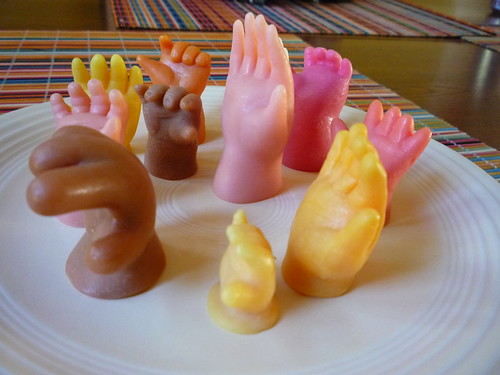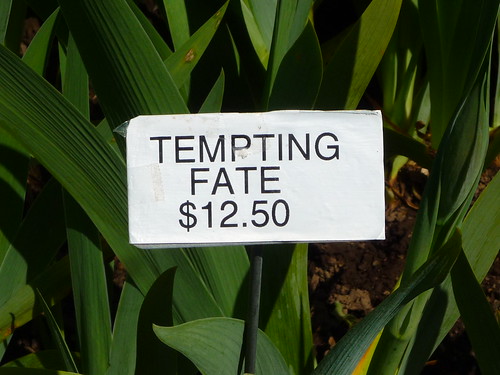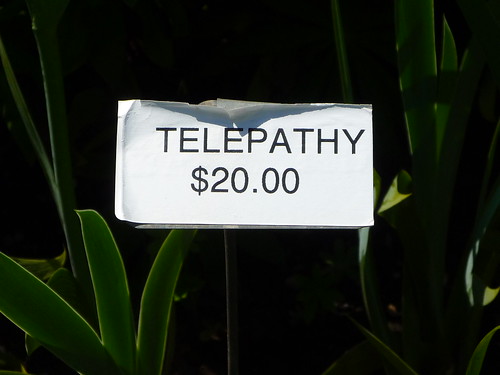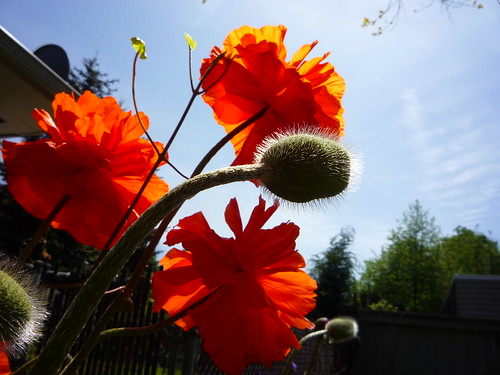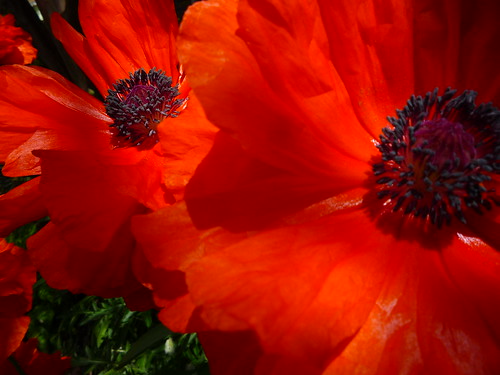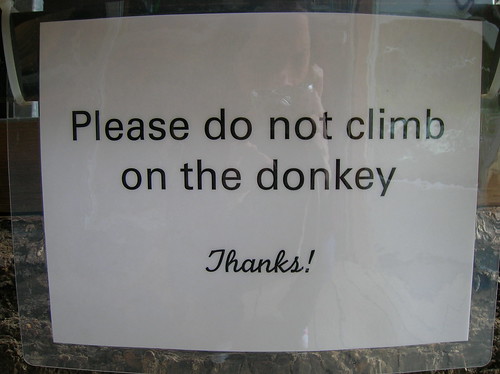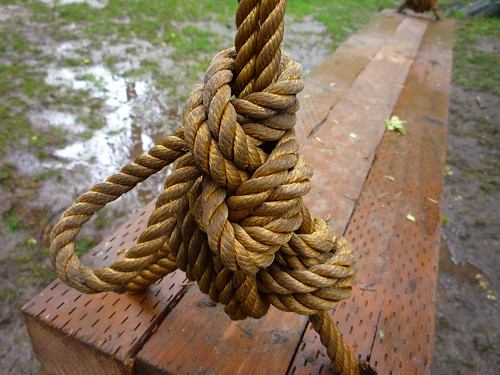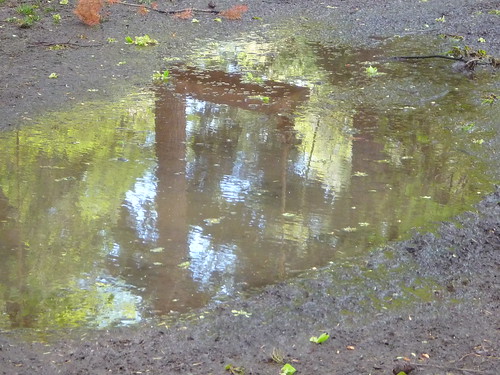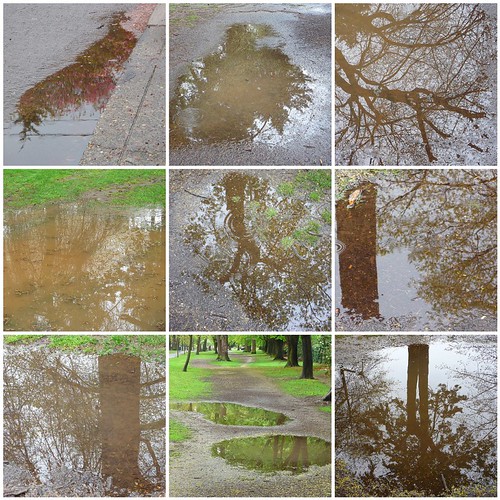
I cleaned out my bag and found the little notebook I used to take notes at Wordstock. Remember Wordstock? It was six months ago! I can hardly believe it. I planned on writing up everything I saw shortly after it occurred, but that never happened due to laziness or craziness or both. Like usual. There's a bright side! This extra time means I no longer feel like venting my spleen about dumb things that irritated me, yet I'm still filled with good feelings about that which pleased me -- the magical old fashioned TEST OF TIME. (I do not always pass the test of time, so it's exciting for me to see that it's possible.)
November 8, 2008: Aimee Bender was the first writer I saw read at '08 Wordstock and she was great! She read her short story Dearth from the (excellent) collection
Willful Creatures. If you are familiar with her stories, it's the one with the potato children. If you are unfamiliar with her stories, it's the one with potato children. (potato children!) You should read it again or for the first time because it is wonderful and bizarre, weird and beautiful, earthy and potato solid.
I love her stories and am surprised to find that I love them more now than I did when I first read them. (I liked them a lot then.) They're sticky on the brain -- little bits adhere when I'm thinking of other, seemingly unrelated things all the time. Her stories are often in the style of fairy tale or fable; even though they take place in the more or less recognizable modern world, their spirit is aligned with the old fairy tale notion that it's dark and dangerous in the wood rather than the more contemporary sparkly tidy Disney happily ever after. She acknowledges the darkness inherent in being a flesh and blood human with dreams and desires, but there's also that spark of hope and grace. Some stories are more than a little disturbing, some made me laugh outright. Her characters want things that are not always wise for them to have. I like her stuff.
After she read her story in full, she did a question and answer session. I'm sure I've been aided by time erasing the memory of the painfully awful questions that crop up in every single author Q/A I've ever witnessed, but the questions were good. Or maybe I only wrote down the good ones. Or maybe she answered even the bad questions with good answers. (some people are really skilled at this. Of writers I've seen read, Steve Almond, Neil Gaiman, Michael Chabon, and Charles Simic are all master straw questions into gold answers people. I think some of it has to do with practice and answering a lot of questions on book tours or in a classroom, but I also think it demonstrates a generosity of spirit. In any case, if you have the opportunity to see any of them read you should take it!)

Here's a rough recap of the questions and answers -- a lot of people asked about her writing process.
What are you reading?
Alice Munro. (she indicated that she was late to the Alice Munro party, but being late was better than not showing up at all.) (note to self: look into Alice Munro.)
How did the potato story come about?
She answered that she writes for a set period of time every day and sees what bubbles up -- but mostly it was born from a love of the word potato, which she indicated is fun to say as much as possible.
I can't really tell from my notes, but I think this next bit was a continuation of the "how" question:
She talked about the fairy tale style of storytelling, and how she liked working with it because the plot is imposed on the character rather than motivated by character. Her (the character's) psychology is expressed through how she responds to this metaphorical world.
Do you set an agenda?
No -- then the story is no longer following its own rules. (quote by v. woolf about agenda corrupting the writer's intent. of course I didn't write down the quote, just that there was one.)
Your stories seem to often be about frustrated people trying to connect. How do you connect?
How we connect and don't is a lifelong obsession!
Someone asked about poetry (my notes said to look up
Denis Johnson, so she must have mentioned him.)
She said she's influenced by it, but doesn't write it. Fiction that feels more like a poem is the fiction she loves best. (ME TOO!)
How do you write?
2.5 hours a day, 5-6 days a week. She does have to force herself, or she'd not do it. 2 hours when she gets up, then she STOPS. She makes herself sit through the restlessness. She found it incredibly helpful to change the way she thought about writing and impose this structure.
She jumps around while writing and works on more than one project at a time. If you keep doing it, the work will accumulate. Always working, but you can't force where the work happens.
Novels are tough. (note: I haven't read her full-length novel yet, only her stories.)
Write what you're interested in that day. Not what you think, but what you are. It allows for a lot of freedom.
On not naming her characters: There are advantages and disadvantages to not naming them. She likes archetypal quality of not naming. It confers the advantages of staying in the world of fairy tale and myth.
photo note: the author photo was one I found on the internet from a reading she did at
Book Soup. She looked pretty much like this at our reading, except instead of being in front of a lot of books, she was in front of a giant screen with her name on it. while looking for a photo, I found that Book Soup also had a podcast of her reading a different story, which you can download
here.potato head photo info here.
